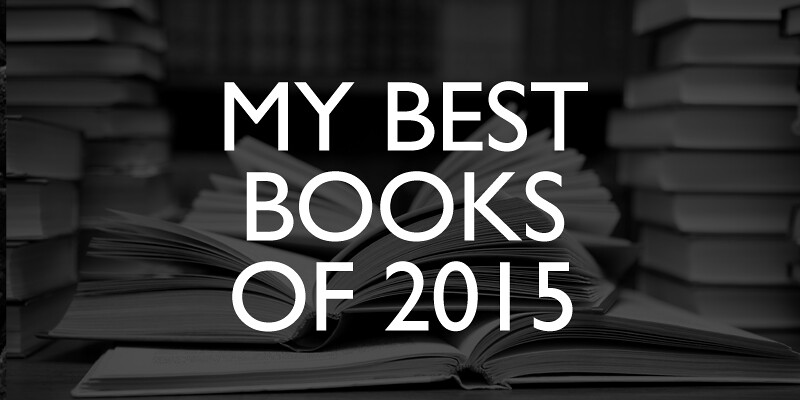 At the end of each year I write a post about my favorite things that year, including my favorite book. However, with all the books I tend to read each year, it seems a little unfair to peg just one book. Often I’ll cheat by breaking it up into a couple different categories (e.g., ministry, fiction). This year, with the number of books I read, I thought I’d dedicate an entire post to my favorite books of 2015. Here goes…
At the end of each year I write a post about my favorite things that year, including my favorite book. However, with all the books I tend to read each year, it seems a little unfair to peg just one book. Often I’ll cheat by breaking it up into a couple different categories (e.g., ministry, fiction). This year, with the number of books I read, I thought I’d dedicate an entire post to my favorite books of 2015. Here goes…
 Best Biblical Studies Book – The Lost World of Adam and Eve by John Walton. Walton’s previous book The Lost World of Genesis One was in my best of 2014, so I was excited to see his follow up book in 2015. I couldn’t put it down. Indeed, I read it the first evening I got it. Walton’s attempt to understand the account of human origins as recorded in Genesis 2-3 is thought-provoking to say the least. There may be many assertions readers disagree with; however, I found Walton incredibly expositional in biblical support and winsome in presentation. The fact that Dr. Walton is committed to the full inspiration of Scripture and a Wheaton professor should give those who are apprehensive at his conclusions at least some modicum of comfort with his personal devotion and intellectual integrity. This book received Christianity Today‘s ‘Award of Merit’ in their 2016 Book Awards.
Best Biblical Studies Book – The Lost World of Adam and Eve by John Walton. Walton’s previous book The Lost World of Genesis One was in my best of 2014, so I was excited to see his follow up book in 2015. I couldn’t put it down. Indeed, I read it the first evening I got it. Walton’s attempt to understand the account of human origins as recorded in Genesis 2-3 is thought-provoking to say the least. There may be many assertions readers disagree with; however, I found Walton incredibly expositional in biblical support and winsome in presentation. The fact that Dr. Walton is committed to the full inspiration of Scripture and a Wheaton professor should give those who are apprehensive at his conclusions at least some modicum of comfort with his personal devotion and intellectual integrity. This book received Christianity Today‘s ‘Award of Merit’ in their 2016 Book Awards.
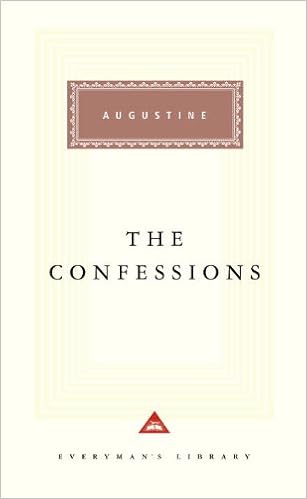 Best Theology Book – The Confessions by Augustine of Hippo. Periodically I try to read a Christian classic for several reasons. The first deals with what C.S. Lewis once noted as “chronological snobbery.” He said a generation can develop a way of thinking whereby it considers inferior any old or ancient way to its own. Reading old books by the the Church Historical helps deliver us from the bubble of thinking our own way is the best or right way. A second reason I wanted to read this book, written from AD 397-400, is because I didn’t want to be someone who always quoted classics without at least attempting to read some of them. Augustine’s work helped me more deeply realize the passion ancient believers had for Jesus and the importance of personal holiness. It also reminded me why it’s good to read the church fathers but not replace the Scriptures with them. At the risk of displaying my own chronological snobbery, I found myself disagreeing with some of Augustine’s assertions (e.g., that baptism is salvific and literally cleanses one’s sins). This deepened my appreciation for historical theology and the witness of the Church Historical. Augustine also would’ve likely failed my homiletics and biblical exegesis classes in seminary. The latter part of his book deals with his take on Genesis where metaphor takes on a life of its own. I was also surprised how philosophical The Confessions is. Frankly, there were times I had to discipline myself to just keep reading because of the abstract nature of Augustine’s content.
Best Theology Book – The Confessions by Augustine of Hippo. Periodically I try to read a Christian classic for several reasons. The first deals with what C.S. Lewis once noted as “chronological snobbery.” He said a generation can develop a way of thinking whereby it considers inferior any old or ancient way to its own. Reading old books by the the Church Historical helps deliver us from the bubble of thinking our own way is the best or right way. A second reason I wanted to read this book, written from AD 397-400, is because I didn’t want to be someone who always quoted classics without at least attempting to read some of them. Augustine’s work helped me more deeply realize the passion ancient believers had for Jesus and the importance of personal holiness. It also reminded me why it’s good to read the church fathers but not replace the Scriptures with them. At the risk of displaying my own chronological snobbery, I found myself disagreeing with some of Augustine’s assertions (e.g., that baptism is salvific and literally cleanses one’s sins). This deepened my appreciation for historical theology and the witness of the Church Historical. Augustine also would’ve likely failed my homiletics and biblical exegesis classes in seminary. The latter part of his book deals with his take on Genesis where metaphor takes on a life of its own. I was also surprised how philosophical The Confessions is. Frankly, there were times I had to discipline myself to just keep reading because of the abstract nature of Augustine’s content.
 Best Ministry Book – The Imperfect Pastor by Zach Eswine. I appreciated Eswine’s transparency about what he believed ministry would be in his life and what it actually became – and how the real latter was better than the imagined (or idolized) former. It enlarged my heart for the weighty things of pastoring while causing me to look in the mirror about my current ministry as pastor. Eswine is a gifted writer. There are many parts of the Eswine’s work that felt novel-esque giving a richer, more colorful sense to the pastor/reader. Ultimately, The Imperfect Pastor was a needed journey for my heart as much as my head. Maybe the best compliment I can give The Imperfect Pastor is that the more I read, the more I repented.
Best Ministry Book – The Imperfect Pastor by Zach Eswine. I appreciated Eswine’s transparency about what he believed ministry would be in his life and what it actually became – and how the real latter was better than the imagined (or idolized) former. It enlarged my heart for the weighty things of pastoring while causing me to look in the mirror about my current ministry as pastor. Eswine is a gifted writer. There are many parts of the Eswine’s work that felt novel-esque giving a richer, more colorful sense to the pastor/reader. Ultimately, The Imperfect Pastor was a needed journey for my heart as much as my head. Maybe the best compliment I can give The Imperfect Pastor is that the more I read, the more I repented.

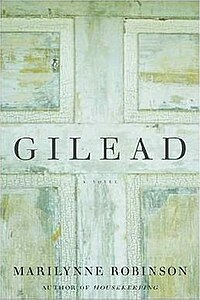
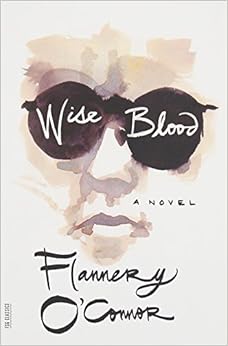 Best Fiction –
Best Fiction – The Things They Carried by Tim O’Brien. Gilead by Marilynne Robinson. Wise Blood by Flannery O’Connor. Sorry, but this is a three-way tie. I read all three on my month-long break this summer and each one was fantastic in its own way. O’Brien’s book was a finalist for the Pulitzer Prize, Gilead won it (2005), and O’Connor’s work is considered by The Guardian as one of the top 100 novels of all time. The Things They Carried is full of pathos about the Vietnam War and, more importantly, what happens to human beings who went through it. Robinson’s work deals with the legacy of an aging pastor and how he sees the world and grace within it. Wise Blood is a book I’ve written about this year: here and here. O’Connor’s sense of what divides true faith from false is so spot on that I kept wondering how she reached her conclusions in the life she lived. All three are written with their own sense of beauty and artistry. O’Brien will make you weep, Robinson will make you wonder, and O’Connor will make you wise.
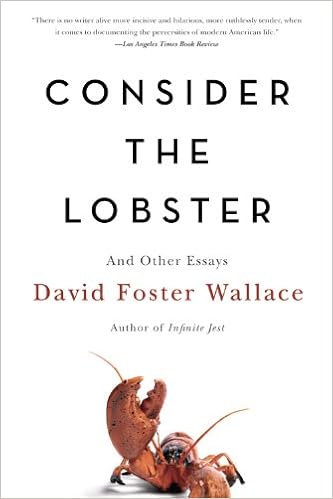 Best Nonfiction –
Best Nonfiction – Consider the Lobster by David Foster Wallace. There are fewer people I’ve developed an intrigue for than David Foster Wallace (or DFW). Considered a genius, DFW is a man whose insight into the human condition has almost an eerie quality about it. This collection of essays is mesmerizing. I don’t know how one person can not only think as deeply (an accurately) as Wallace but communicate those thoughts as precisely and effectively as well. Consider the Lobster is DFW’s time of show-and-tell about his genius. This guy can make talking about the dictionary engrossing. I’m not kidding! I stole this book from a friend and didn’t give it back until I finished it a few days later.
Best Book I’m Still Trying to Digest – Infinite Jest by David Foster Wallace. Well, you’ve heard about DFW already but Infinite Jest is his gargantuan novel [ref]1079 pages with a serious amount of lengthy, at times short-story length, footnotes[/ref] about a teenager who is a student at a tennis academy, a drug treatment center, and a video which renders people invalid. All of this occurring in a dystopian United States. Weird? Well, I’ll put it this way, I felt like I was engaging the literary version of a Terry Gilliam film. Surreal. Strange. But also something you felt you needed to experience in order to ask better questions about life and reality. Maybe one of the reasons I like Infinite Jest is because I don’t exactly know what to do with it. I can see why people continue to re-read Wallace’s work in order to find new answers and insights.
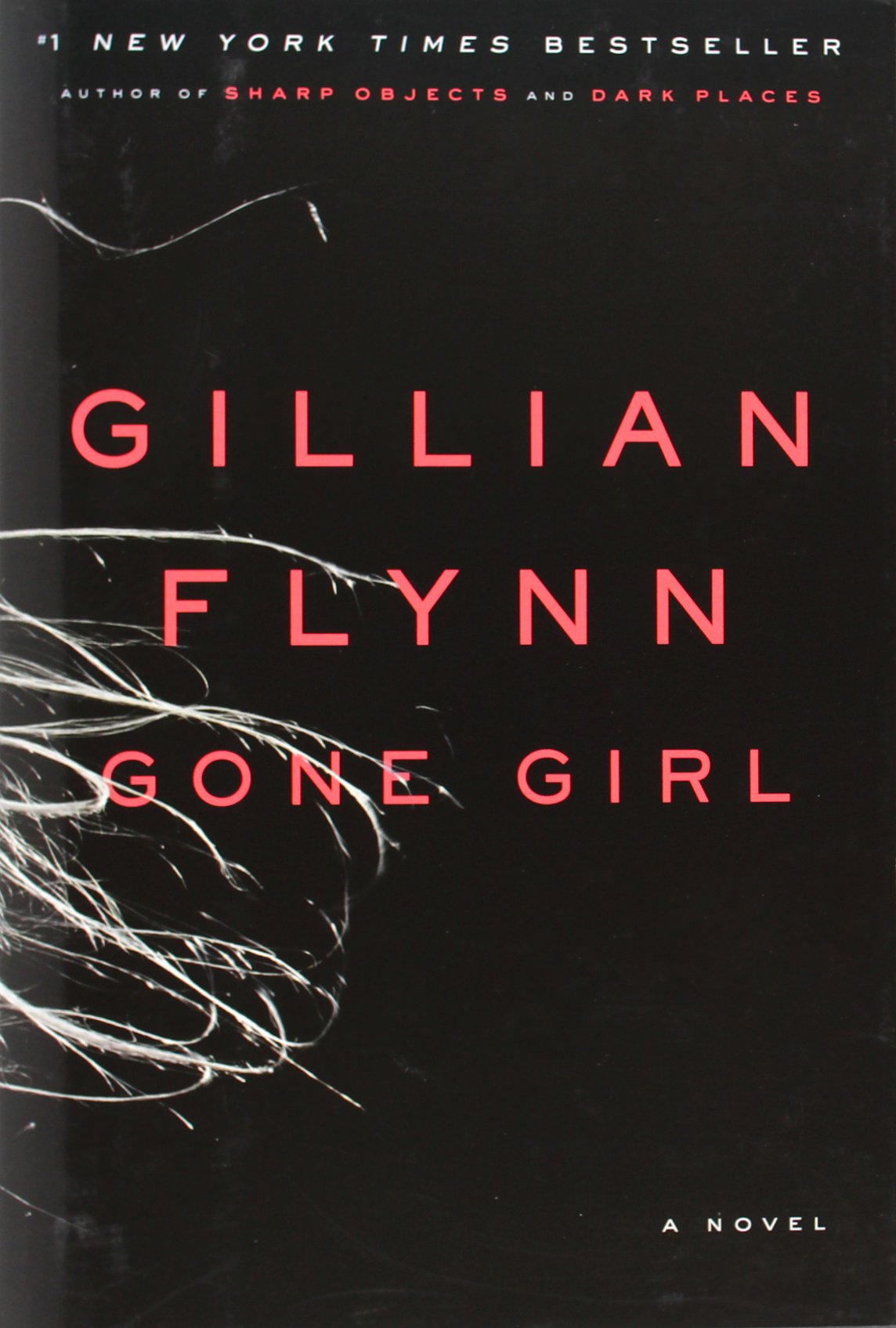 Best Just for Fun Book – Gone Girl by Gillian Flynn. While it could have excised some explicit sexual language, Flynn’s work was a true page-turner. I think I put down this book twice before finishing it. Just twice. Her twists and turns were well-crafted and left me wanting to read more of her work. Slick, smart, and super. Gone Girl is an outstanding “summer” read with an ending I appreciated although some did not.
Best Just for Fun Book – Gone Girl by Gillian Flynn. While it could have excised some explicit sexual language, Flynn’s work was a true page-turner. I think I put down this book twice before finishing it. Just twice. Her twists and turns were well-crafted and left me wanting to read more of her work. Slick, smart, and super. Gone Girl is an outstanding “summer” read with an ending I appreciated although some did not.
 Most Overrated Just for Fun Book – The Martian by Andy Weir. Maybe I felt nonplussed by Weir’s book because I was recuperating from surgery and on painkillers but The Martian felt like many movies people push: over-hyped but underwhelming. I had the sense I was reading more screenplay than novel. But give credit where it’s due, Weir, a software engineer, originally self-published his novel and it won popular acclaim (and a book deal) on its own merit.
Most Overrated Just for Fun Book – The Martian by Andy Weir. Maybe I felt nonplussed by Weir’s book because I was recuperating from surgery and on painkillers but The Martian felt like many movies people push: over-hyped but underwhelming. I had the sense I was reading more screenplay than novel. But give credit where it’s due, Weir, a software engineer, originally self-published his novel and it won popular acclaim (and a book deal) on its own merit.
